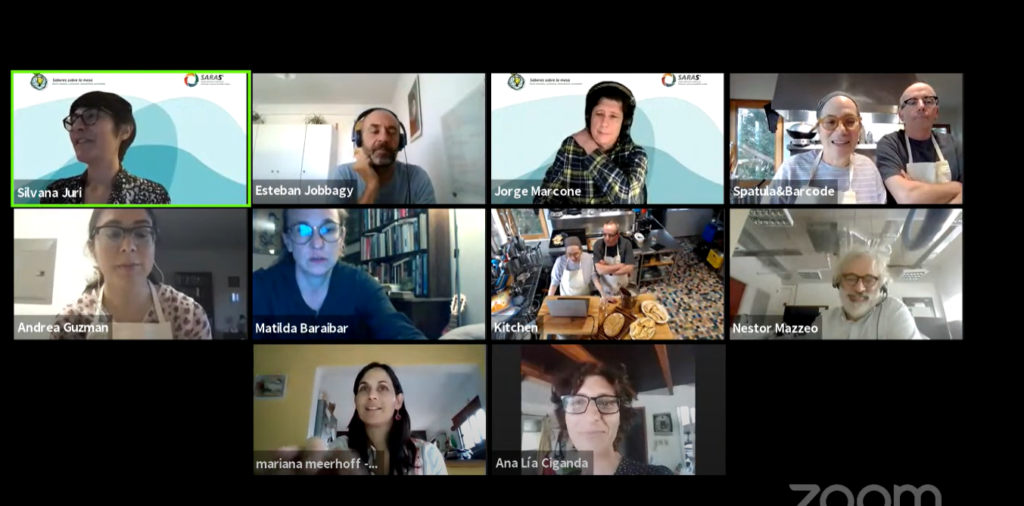“Food and Crisis”, what was the 1st. virtual event March 2021

On March 23 and 24, the SARAS Institute began the cycle “Knowledge on the table: towards sustainable food systems and practices” with the first of three virtual meetings that will take place during 2021. This first meeting of two intense working days entitled “Food and crisis: Resiliencies” brought us closer to a global view on the topic of food in the context of current challenges and allowed us to contact the advances in inter and transdisciplinary research that are carried out from the thematic cycle “Food and sustainability” from Instituto SARAS, which began in 2019.
With the meeting “Food and crisis: resilience” we open the projected meetings, this one particularly focused from the resilience for two reasons: first, because of the perspective of Resilient Thinking as a prominent work approach from the Institute; and secondly, because the current COVID-19 pandemic has highlighted, accelerated, and perhaps even has hidden different types of crises that exist in our societies and that have a profound relationship or impact on our food systems.
The first day had the participation of researchers Juan Rocha and Guillermo Ortuno Crespo from the Stockholm Resilience Centre along with local actors and researchers such as María Rosa Curutchet from the National Food Institute of the Ministry of Social Development of Uruguay, Alejandra Girona Graduated in Nutrition of the Interdisciplinary Childhood and Poverty Space of the University of the Republic of Uruguay, Miguel Sierra President of the National Council of Innovation, Science and Technology of Uruguay and Ezequiel Arrieta, a doctoral fellow of CONICET and communicator of Science of Argentina, placed us in a block destined to see the global “Perspectives” of the subject, and then, in the course of the activities, move on to a block of “Dialogues” in which existing regional and local knowledge and perspectives were addressed.
On this first day, also from a virtual space called “Gallery”, the progress of the different projects that have emerged during this cycle and that address different topics from a variety of angles of analysis and practice, theoretical frameworks, and scales were shared. These are projects such as Collective Cooking, Fluruguay Globalimentario, COVID Foodways, and the Sobremesa Podcast in which researchers, civil society actors, chefs, and artists converge, among others. These actors have been developing different ways of learning and helping to understand the complexity of the issues around food. In this “Gallery” we were able to see exhibited and presented some of the products and tools produced by said teams, pieces that will be available on the Cycle website.
During the second day of the 24th, the participants were able to access a wide range of work options in workshops and discussions facilitated by the participants of the projects and with the participation of several guests. An audience that included the public, researchers, and even Uruguayan government authorities, of more than 100 people were an active part of seven participatory activities in which it was possible to meet, discuss and work and even almost taste around different triggers proposed by the projects. During an entire afternoon, we travelled a path of knowledge and socialization around collective projects on food such as Cocería Colectiva, we debated about challenges of Environment and development in Uruguay, about the movement flows and production of commodities in Uruguay, we explored the Environmental footprint of our dishes, as well as we learned more and discussed the impacts of the pandemic that COVID-19 has had on food practices since last year, among others.
The series of virtual events will continue next June, in which we will meet again under the slogan “Food, society, and nature: Synergies”. It will once again be a space for participatory action research, as well as a platform through which to advance and contribute to a greater dialogue linked to the necessary paths to advance towards transformations for our food systems.
We invite you to see more about what happened in the first meeting, as well as to be attentive to the news of the cycle. To learn more about the projects and this cycle of events, visit the website saboreandosostenibilidad.net
